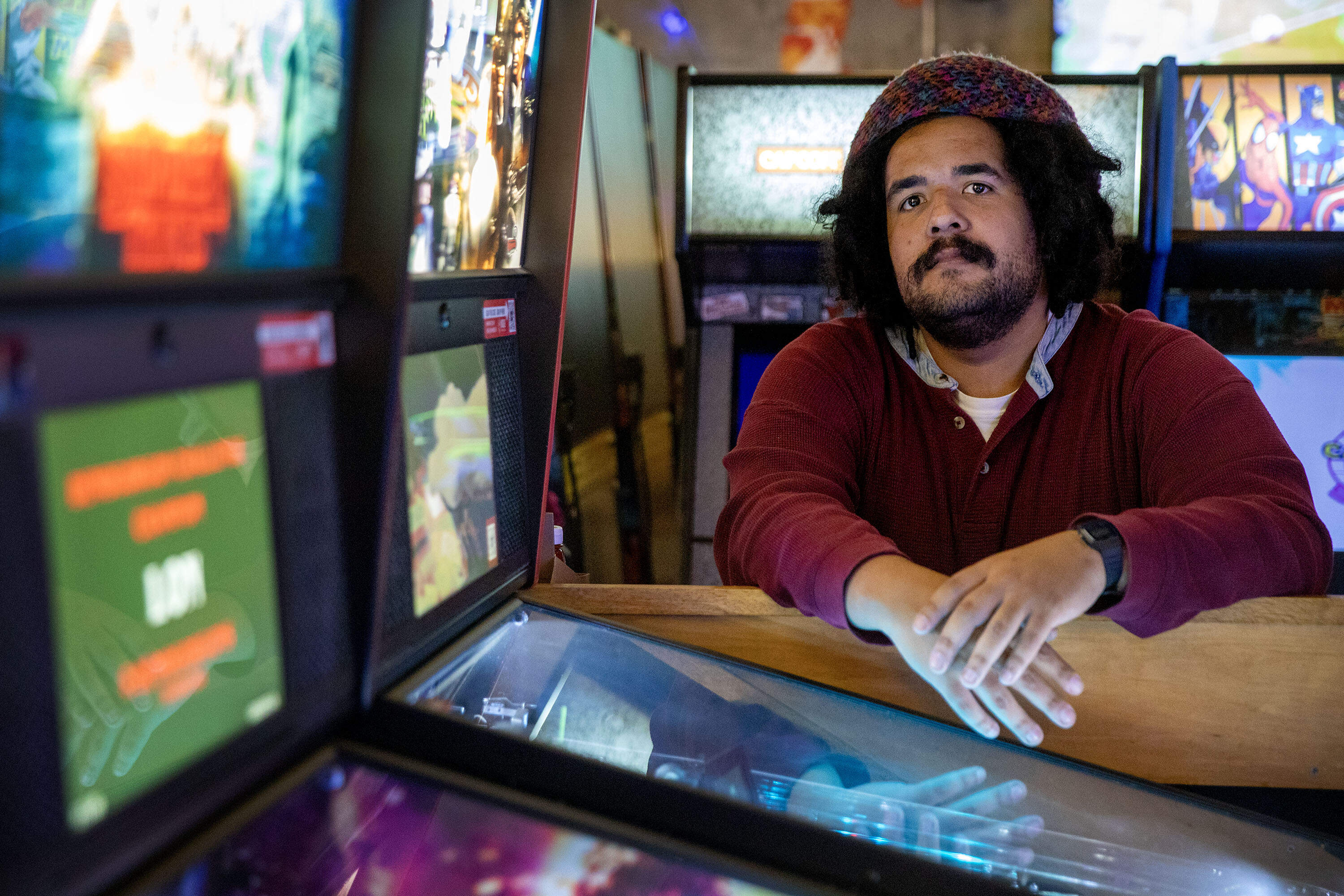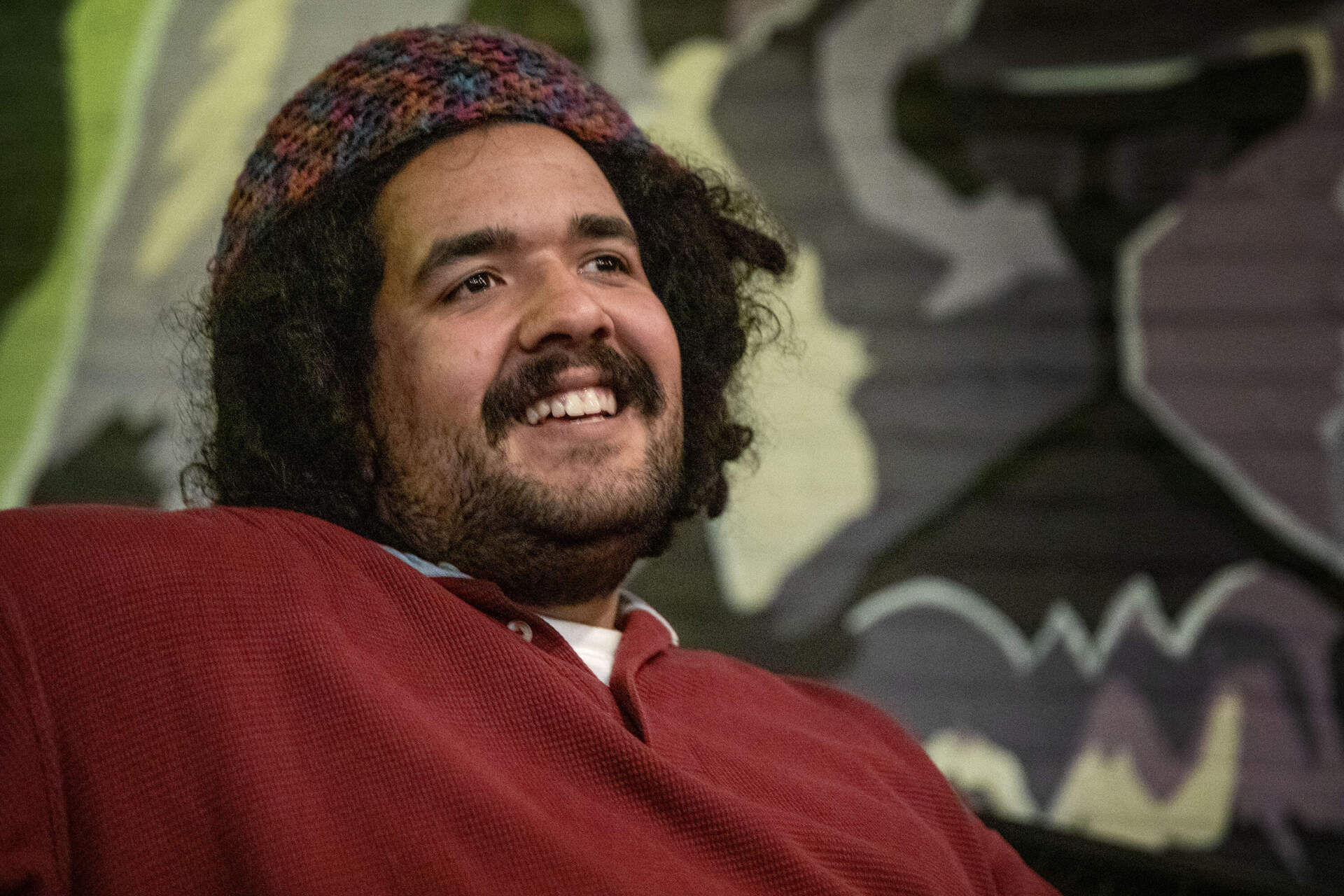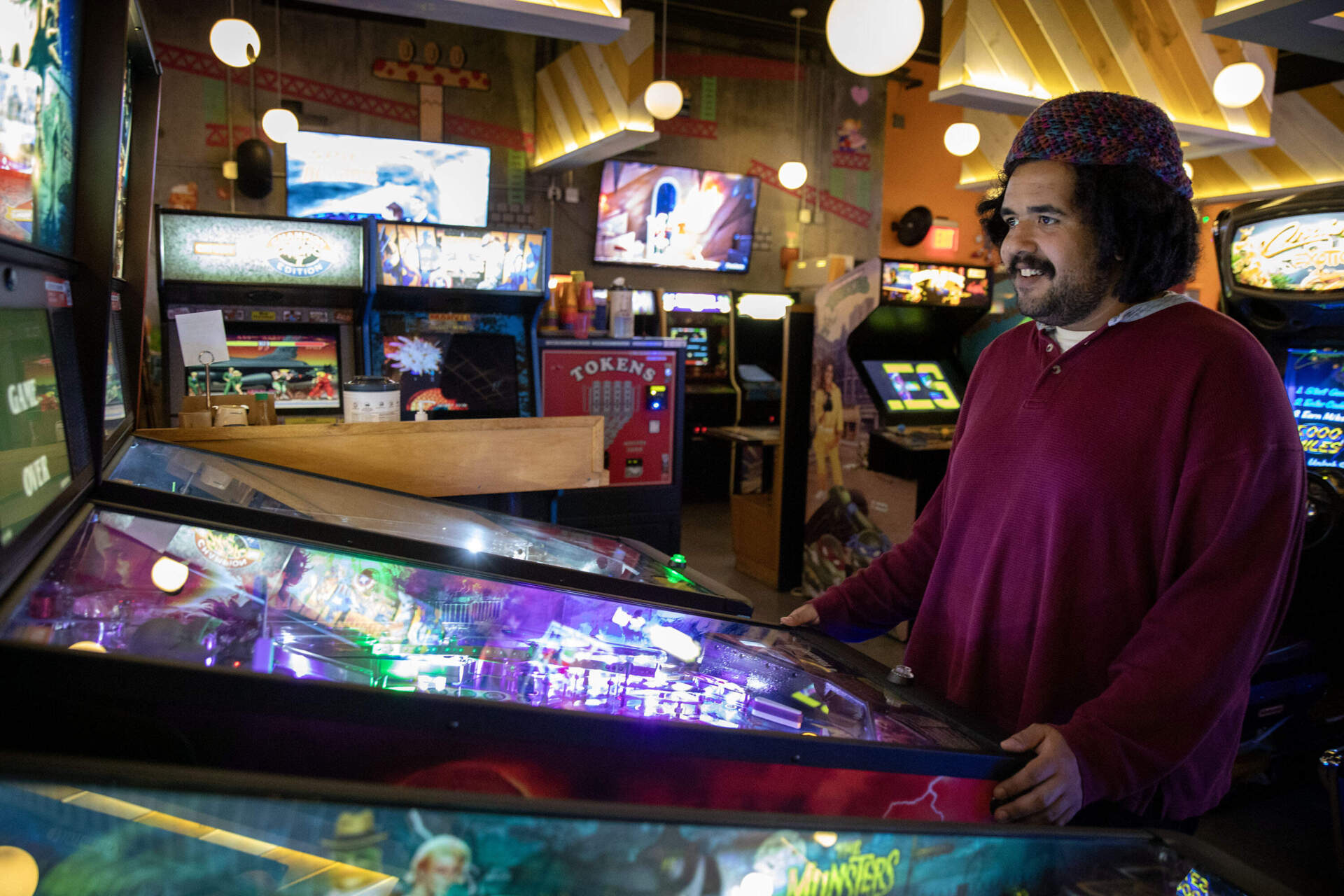
Boston rapper Pink Navel makes a case for playing games
To say that Devin Bailey is very into video games would be an understatement. The rapper and producer, who performs as Pink Navel, enjoys video games of all kinds, with seemingly equal fervor: the adrenaline-raising intensity of first-person shooters, the expansive mythology of role-playing games, the myopic zeal with which Pac-Man devours an endless line of circular pellets.
At Roxy’s Arcade in Central Square on a recent December evening, Bailey wondered if the place had a vintage arcade game called “Tapper.” In it, the player — a little animated bartender — runs around pouring beer for a parade of customers who occasionally attempt to hoist him onto the bar and throw him out the door. It is important to note that Bailey works as a bartender at a local brewery, so you could forgive them if the gamifying of service industry indignities didn’t appeal. But “Tapper” is one of their favorites. That’s how much Devin Bailey loves video games.
So it’s no surprise that video games — and, relatedly, internet culture — play a prominent supporting role in Bailey’s music. (Case in point: they produced all the beats for their last project live on the streaming platform Twitch.) Over the past eight-ish years, the 27-year-old has gained an underground following by layering off-kilter raps dense with gamerspeak over lo-fi beats.
Pink Navel's latest album, “How to Capture Playful,” is a collaboration with the respected indie-rap producer Kenny Segal. It marks Bailey’s first full-length project in which they didn’t also produce all the music, and their first major outing with a producer of Segal’s stature. It is also the Allston rapper's first attempt to transform the subtext of their oeuvre — video games — into its subject.

“I think video games and pop culture are a driving force in rap in general, but I think youthful joy, and bubbly joy, are not as represented,” Bailey said in an interview earlier that day in the back room of a nearby brewery. (Bailey, a person of many enthusiasms, is also very into beer.)
In other words, “How to Capture Playful” is an ode to video games in the purest sense. These are games, after all, and games are supposed to be fun. “Let’s play!” Bailey exclaims at the top of the first track, “Reset,” in which they compare the rap game – usually a topic of extreme self-seriousness – to a video game. “Favorite quest line is the one where I become great at rap,” Bailey intones, referring to the different plotlines, or quests, a player could explore in a role-playing video game. The song unfolds over an appealingly off-kilter beat that sounds like a jazz band warming up, each instrument on a slightly aimless quest of its own.
The vibe is in keeping with Bailey’s own production style, which favors glitchy beats that mesh unexpectedly with the rapper’s lopsided, halting cadence. Joy may be the driving emotion for many of the songs on “How to Capture Playful,” but the music itself is playful in a more unpredictable sense, tumbling disjointedly like Mario across his side-scrolling stage. It’s not euphoric music; it’s not trying to pump you up.
“A lot of artists, when they mature, they, in my opinion, maybe play pretend that they don't go home and think about funny and cute things. And there's space for that,” Bailey said. “We can have these interests and have these loves that can be honored in a way that still doesn't feel hammy or ingenuine.”
"I think video games and pop culture are a driving force in rap in general, but I think youthful joy, and bubbly joy, are not as represented."
Pink Navel
Bailey, who grew up in Marshfield, came up in the local indie rock scene as the lead singer in the emo band Handwriting. The indie rock credentials help explain Bailey’s unusual niche in the Boston music community, one of the few rappers in its thriving, queer-friendly DIY scene. (Bailey identifies as non binary.) Like the internet gaming forums Bailey spent hours perusing as a teen, music offered a sense of safety.
“I think it's easier for me to socialize under a common goal,” Bailey said. “I found that DIY ethos to be really endearing, when everybody's focused on this common goal of, ‘Let's give these people a platform to share their weird art.’”
Bailey started making beats and rapping in high school. They dropped out of college to join Ruby Yacht, a rap collective then based in Maine. Bailey found a kind of mentor in one of its founding members, Rory Ferreira, an indie rapper who performs as R.A.P. Ferreira. It was through Ferreira that Bailey met Segal, who produced R.A.P. Ferreira’s critically acclaimed 2015 album “So the Flies Don’t Come.”
The first time Segal heard one of Bailey’s demos, he was struck by the rapper’s charisma. “‘Oh wow, they know how to not just rap well and have cool ideas, but they have this way that they connect with people that is special,’” Segal recalled thinking. “And you can't really bottle that up or teach that to people.”
On tour in 2018, Segal and Bailey bonded over a game they both loved, “Enter the Gungeon.” Four years later, Bailey flew to Segal’s house in Los Angeles to lay down the first tracks of what would become “How To Capture Playful.” Segal remembers playing an early version for Ferriera to get feedback.
“Rory’s comment was that it wasn’t personal enough,” Segal recalled. It was a little too much about video games, and not enough about Bailey. The rapper took this note to heart.
“When Rory said that, Dev came back with, like, three amazing songs, within a week, that were all exactly what it needed,” Segal said.

One of those songs was “Memory Card.” The song celebrates the value of seeking experiences over achievements and the wholesome distraction that games can provide. “I wasn't in my bag/ I wasn't at my peak/ But at least I had rap/ Maybe a game once a week,” Bailey raps over a warm piano sample.
On the track, Bailey draws a direct line between gaming and making music, two sometimes solitary pursuits that are often looked down upon. It’s a connection the rapper makes throughout “How to Capture Playful.” The album is a repudiation of the notion that hours spent alone are lonely. It’s a rejection of the belief that play is frivolous or that creativity is less serious than other pursuits. And it’s an embrace of art as a form of play: neither lofty, both meaningful.
The refrain of “Memory Card” features Bailey at their most personable and inviting: “I wait in line playing games/ I sit and wait playing, too/ Maybe I'll play some today/ Maybe I'll play some with you.”
Bailey explained the chorus. “Even in this very minute, idle time, I'm playing, and I honor that throughout my day,” they said. It's an invitation to join Bailey in a world where play is valued, and none of those idle moments are considered wasted.
